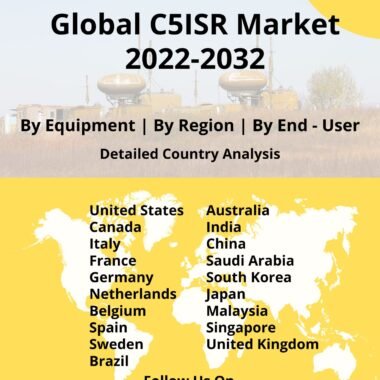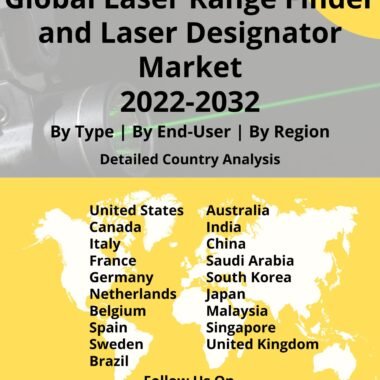Description
What is a Radar and AESA Radar?
A radar basically consists of three units including a transmitter, receiver, and antenna. A transmitter generates an electromagnetic signal, which is then sent into space via an antenna. It’s used to anticipate and monitor a variety of things, including spacecraft, missiles, and planes among others.
AESA is the advanced version of Passive electronically scanned array radar. PESA can emit one radio wave, whereas AESA can emit multiple radio waves at a single frequency at a time. AESA systems were first introduced in the 1980s. AESA is the acronym for Active Electronically Scanned Array Radar. AESA systems were a huge step forward in radar technology.
These radar systems are a class of phased array systems that comprises a collection of antennas. These antennas generate a beam of radio waves in different directions while it is stationed in one location. To provide improved situational awareness, AESA systems are being deployed on a variety of military platforms, notably military aircraft and drones.
Why is AESA special?
AESA systems cannot be jammed with numerous electronic devices. These radar systems can overcome radar warning receivers as AESA uses the chirping technique. It is considered to be reliable as every module in it operates independently. With the help of these radars, multiple tasks can be performed such as real beam mapping, sea surface search, air to air search & track, synthetic aperture radar mapping, and ground moving target indication and tracking. It can track multiple targets at the same time.
Market Trends of AESA Businesses
The growing threat of ballistic missiles and nuclear assaults is constant across Asia and the Middle East countries. Thereby, these countries are anticipated to be the potential market for defense equipment firms. Moreover, in recent times, every modern aircraft are equipped with AESA radar systems. These radars are installed on a variety of fighter jet models, including the F-22, F-35, Boeing F/A-18E/F, Dassault Rafale, and Eurofighter Typhoon, which are among the most popular fighter jets on the market today. For instance, in 2020 Saab stated that it has completed the first air trials with its new X-band Active Electronically Scanned Array radar that were installed in a Gripen D fighter jet. The radar was built for fighter planes and can be used across various platforms.
Northrop Grumman Corporation, multinational aerospace, and military technology corporation based in the United States, declared in 2020 that its AN/APG-83 Scalable Agile Beam Radar AESA radar had gained full operational capability on US Air Force Air National Guard F-16 fighter jets. Certain initiatives are expanding the market growth at present.
Though the AESA radar is widely considered the most technologically advanced and inventive form of the tactical radar system, AESA does have some limitations i.e. its limited field of view (FOV). The highest field of view (FOV) feasible for a flat phased array antenna is normally between 90 and 120 degrees for AESA radar. To obtain wider coverage, multiple antenna heads or two rotating antenna heads are used.
Manufacturers are facing challenges during the development of AESA technology in terms of weight, power, price, and cooling. Though, over the past few years, the weight has already been decreased to half compared to the traditional ones. Furthermore, continuous advancements in AESA radar systems will gain attraction. For instance, Raytheon Intelligence & Space in September 2021 has introduced lightweight, affordable, and compact AESA radar. It leverages the functionality of a heavyweight AESA fire control radar with the smallest possible form factor ever. Henceforth, such advancements in AESA tech will aid the business to expand in near future.
Some Major Contracts and Developments in AESA Market.
Some of the market’s major companies are Northrop Grumman Corporation, Thales Group, Lockheed Martin Corporation, Israel Aerospace Industries, and Raytheon Company. As most AESA radar contracts are long-term, businesses are attempting to attract new customers by demonstrating their newer generation radars, which have superior capabilities and lower system weights than previous models.
In January 2021, Lockheed Martin Corporation has been awarded a Pentagon Contract worth USD 32.9 Million for Taiwan’s F-16 upgrade program
In 2021, Raytheon Technologies Corporation builds 19 advanced AESA airborne radar systems to modernize F/A-18C/D combat jets of US Marine Corps under a contract worth USD 63.1 million
In April 2021, Hensoldt AG, a multinational German corporation has received a contract worth around USD 241 million to manufacture active electronically scanned array radars for the 38 Project Quadriga Eurofighters of the German air force.
Leonardo and BAE Systems have been awarded a contract of around USD 420 million to develop the Royal Air Force’s Eurofighter Typhoons in September 2020.
In June 2020, The German and Spanish Eurofighter fleets have awarded Airbus SE, a European multinational aerospace corporation with a contract to develop, procure, and integrate 115 Eurofighter ESCAN Captor-E AESA Radars. By 2023, the deal is to deliver and integrate 110 Captor-E radars to Germany, and 5 radars to Spain.




